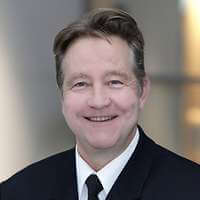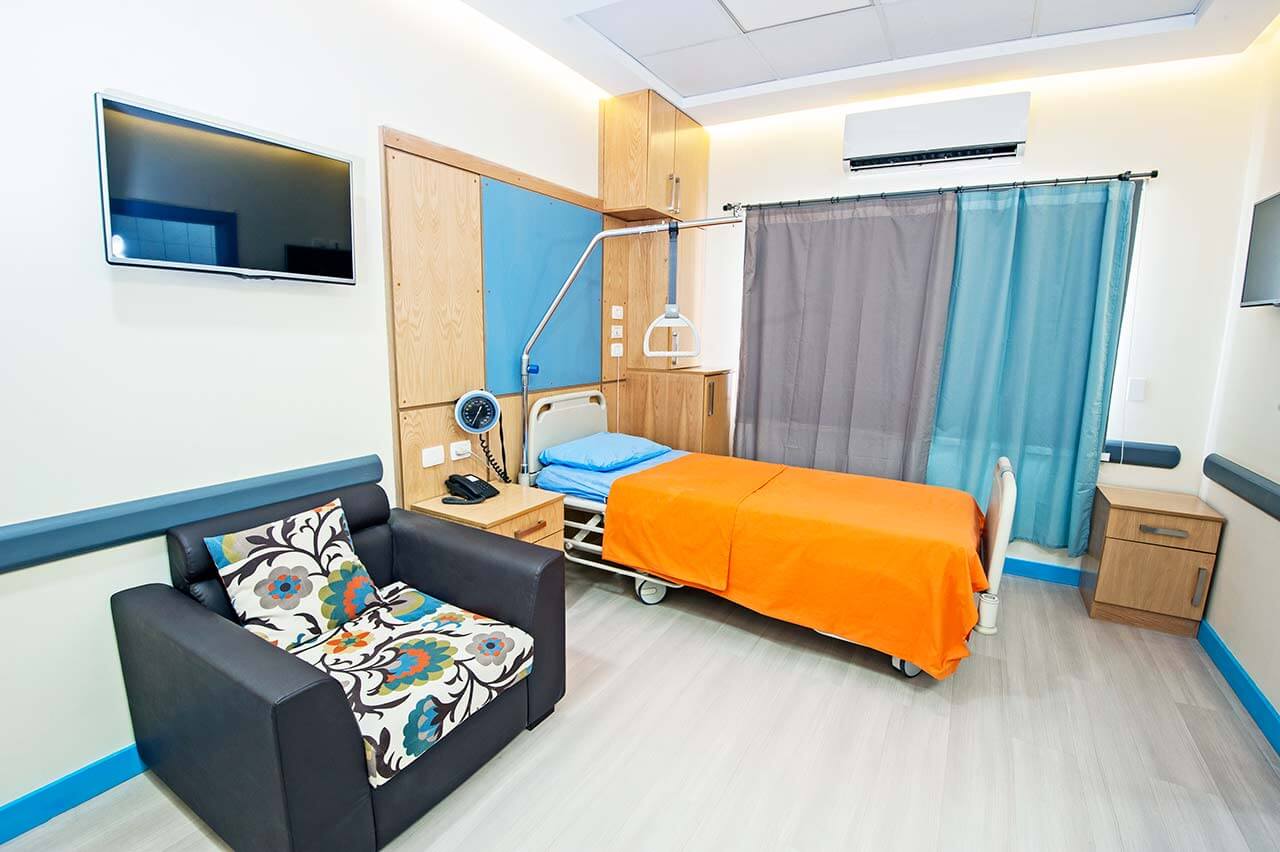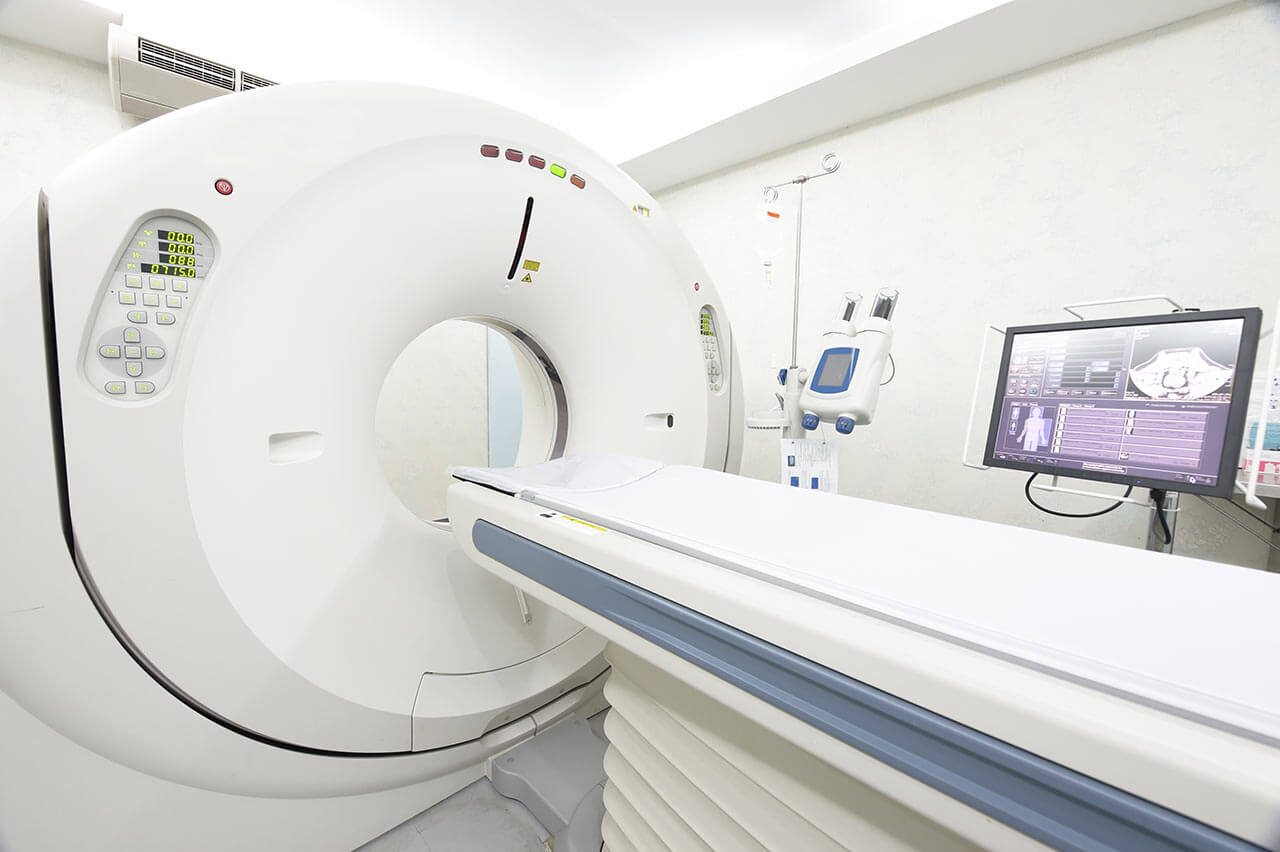
The program includes:
- Initial presentation in the clinic
- clinical history taking
- review of medical records
- physical examination
- laboratory tests:
- complete blood count
- biochemical analysis of blood
- inflammation indicators (CRP, ESR)
- indicators blood coagulation
- neurological examination
- CT/MRI scan (one region)
- spondylogram
- muscle spasm blockade
- neuropsychological tests (on indications)
- consultation of related specialists
- symptomatic specific treatment
- the cost of essential medicines and materials
- nursing services
- control examinations
- full hospital accommodation
- developing of further guidance
Required documents
- Medical records
- X-ray examination, MRI/CT scan (if available)
Service
You may also book:
 BookingHealth Price from:
BookingHealth Price from:
About the department
The Department of Neurology and Epileptology at the Bundeswehr Hospital Berlin offers the full range of services in these medical fields. It specializes in the diagnostics and treatment of acute and chronic diseases of the central and peripheral nervous system, ranging from inflammatory diseases of the central nervous system, movement disorders and ending with neurovascular pathologies. The team of the department's neurologists has rich experience in the management of patients with a stroke, epilepsy and multiple sclerosis. As of today, the department also carries out a special check-up for the patients who have suffered a coronavirus infection, which often causes the development of neurological disorders. The department has excellent diagnostic options, which allows the doctors to timely detect neurological diseases and develop optimal treatment regimens. The specialists of the medical facility cooperate closely with neurosurgeons and other doctors of the hospital, so patients can count on comprehensive medical care. The department is headed by PD Dr. med. Florian Masuhr.
The key to the successful treatment is accurate diagnostics, so the department has state-of-the-art equipment. With its help, the specialists can timely detect structural and functional disorders of the nervous system, after which they develop the most effective treatment regimen. The Neurophysiology Unit carries out many modern examinations, such as nerve conduction velocity tests, electromyography, recording of visual evoked potentials, somatosensory evoked potentials, auditory evoked potentials, motor evoked potentials, etc. The department also has advanced equipment for electroencephalography, extracranial and transcranial Doppler ultrasonography, and duplex scanning. Imaging diagnostic tests include MRI and CT scans, as well as CT angiography. Laboratory tests are carried out within an in-house laboratory with the possibility of examining cerebrospinal fluid and performing tests to detect inflammatory processes in the nervous system.
The department's specialists prefer an interdisciplinary approach to the treatment and involve the necessary doctors of related medical specialities in the process. Of particular importance is the cooperation with the Department of Neurosurgery. The clinical practice is based on a combination of classical and innovative treatment methods, which ensures the achievement of the best outcome. The department's specialists set themselves the goal of guaranteeing each patient a personalized medical care and a rapid return to their normal life.
During the treatment, the physicians actively use highly effective drugs, some of which were developed in the department and are available only here. The medical facility also performs deep brain stimulation in cooperation with the Department of Neurosurgery, for example, for movement disorders, epilepsy, etc.
The department is distinguished by its successful results in the field of stroke therapy. A stroke is an acute cerebrovascular disorder that requires immediate medical care. Stroke is one of the most common neurological disorders and often causes disability or even death. However, if the patient receives timely medical care, the chances of recovery and maintaining a decent quality of life are quite high. The department's neurologists provide stroke treatment in a specialized Stroke Unit with advanced equipment and systems for monitoring vital signs. The main types of treatment for stroke are lysis therapy and thrombectomy. The attending physician determines the optimal therapeutic procedure on an individual basis. After suffering a stroke, the patient requires neurological rehabilitation, including therapeutic exercises, occupational therapy, physiotherapy, massage and other activities aimed at restoring mobility and self-care skills.
Epilepsy is also common in the clinical practice of the department's doctors, so they have rich experience in managing patients with this neurological disorder. The main manifestation of the pathology is periodic epileptic seizures with impaired motor and cognitive functions. During the diagnostic examination, it is important for the department's physicians to accurately determine the particular type of epilepsy, since the follow-up treatment and its effectiveness depend on this. The team of the department's neurologists treats epilepsy with the help of modern medications. In most cases, monotherapy with a single antiepileptic drug is indicated for the patients, but in certain situations, a combination of several drugs is also possible. The patients should be prepared for the fact that the treatment continues for several years. At the same time, it is extremely important to take medications regularly and strictly according to the prescriptions of the attending physician. In addition to drug therapy, the specialists select a proper diet, excluding the consumption of foods that provoke epileptic seizures. The last-line therapy is a surgical intervention performed by specialized neurosurgeons.
Another focus of the work of neurologists is medical care for the patients with multiple sclerosis, which is a chronic autoimmune lesion of the nervous system. Despite the advances of modern medicine, doctors still do not know the exact causes of the development of a neurological disorder, and there is no treatment that would help patients get rid of the disease once and for all. The clinical manifestations of multiple sclerosis include weakness or numbness of the arms and legs, poor visual acuity, balance disorders and unsteadiness when walking, diplopia, dizziness, increased muscle tone, urinary disorders, etc. The diagnosis can be confirmed with magnetic resonance imaging and a cerebrospinal fluid analysis. Multiple sclerosis treatment involves the use of immunomodulatory drugs that can suppress the activity of the immune system against the sheaths of the nerve fibers. To prevent the development of an irreversible neurological deficit and disability, the treatment should begin immediately after the establishment of the diagnosis. Even with good health, the patient constantly has new areas of nerve fiber lesions. In the case of exacerbations of the pathology, the department's doctors prescribe a course of high-dose hormone therapy. Therapeutic exercises, physiotherapeutic procedures, massage and other treatment methods also have a beneficial effect.
The department specializes in the diagnostics and treatment of the following neurological disorders:
- Neurovascular disorders: strokes and their life-threatening complications
- Neuroimmune disorders: multiple sclerosis, Guillain-Barré syndrome, myasthenia gravis, stiff-person syndrome
- Neurodegenerative disorders: Parkinson's disease and dementia
- Severe diseases of the peripheral nervous system: plexopathy, polyneuropathy
- Myopathy
- Benign and malignant brain tumors
- Epilepsy
- Chronic headaches
- Other neurological disorders
The department's range of diagnostic and therapeutic options includes:
- Diagnostic tests
- Lumbar puncture and cerebrospinal fluid analysis
- Peripheral nerve conduction velocity measurement
- Registration of sensory and motor evoked potentials
- Electromyography
- Neurosonology (extra- and transcranial doppler ultrasonography and duplex sonography of the cerebral blood vessels, sonography of the nerves)
- Electroencephalography (measurement of the electrical activity of the brain)
- Computed tomography
- Magnetic resonance imaging
- CT angiography
- Therapeutic procedures
- Drug therapy
- Injection therapy with botulinum toxin (for example, for spasticity)
- Lysis therapy and thrombectomy for stroke treatment
- Ergotherapy
- Physiotherapy
- Therapeutic exercises
- Massage
- Other medical services
Photo of the doctor: (c) Bundeswehrkrankenhaus Berlin
About hospital
The Bundeswehr Hospital Berlin enjoys a reputation as one of the leading medical facilities in Germany, where patients receive top-class medical care corresponding to the high standards of European university medicine. The medical center is an academic hospital of the Charite University Hospital Berlin – the largest and the most reputable in all of Europe. The main clinical focuses of the medical facility include emergency care, traumatology, urology, internal medicine, surgery, neurosurgery, neurology, nuclear medicine and others. The hospital offers 15 specialized departments, whose medical teams guarantee excellent treatment results, safety and an individual approach to their patients.
The hospital's staff consists of more than 1,100 competent employees. They work hand in hand to provide their patients with comprehensive and the most effective treatment. Of paramount importance is an individual approach to each patient and his clinical case. The specialists are always open to a dialogue with their patient, tell about the specificities of the upcoming treatment and its expected results. Whenever required, it is possible to involve experienced psychologists in the therapeutic process, who will help the patients to get rid of depressive states and set themselves up for a favorable treatment outcome.
The hospital has at its command state-of-the-art technical resources: equipment for minimally invasive interventions, diagnostic and therapeutic endoscopic procedures, navigation systems, advanced surgical microscopes, various laser devices, imaging systems for the accurate examinations and percutaneous interventional procedures.
The hospital has a quality management system, thanks to which it can strictly control the quality of patient care and other internal processes. In addition, the healthcare facility became the first Bundeswehr hospital, which was awarded the KTQ® certificate (06.02.2006). The KTQ® certification is carried out every three years and the hospital always passes it successfully. And then in 2000, the hospital was certified in accordance with the DIN EN ISO 9001:2000 standards. These achievements testify to the outstanding quality of medical care and the leading position of the hospital in the healthcare sector.
Photo: (с) depositphotos
Accommodation in hospital
Patients rooms
The patients of the Bundeswehr Hospital Berlin live in comfortable single and double patient rooms. Each patient room is equipped with an ensuite bathroom with a shower and a toilet. The patient room furnishing includes a comfortable bed, a bedside table, a TV and a telephone. To ensure a pleasant hospital stay, here is a library with an excellent choice of audiobooks, magazines and games. There is also a beautiful park on the territory of the hospital where one can enjoy peace, clean air and beautiful nature.
Meals and Menus
The hospital offers delicious and healthy three meals a day: a buffet breakfast, a hearty lunch and a light dinner. Every day, patients have a choice of three menus. Vegetarian dishes are also available.
If for some reason you do not eat all the foods, you will be offered an individual menu. Please inform the medical staff about your dietary preferences prior to the treatment.
Further details
Standard rooms include:
Accompanying person
Your accompanying person may stay with you in your patient room or at the hotel of your choice during the inpatient program.
Hotel
You may stay at the hotel of your choice during the outpatient program. Our managers will support you for selecting the best option.




